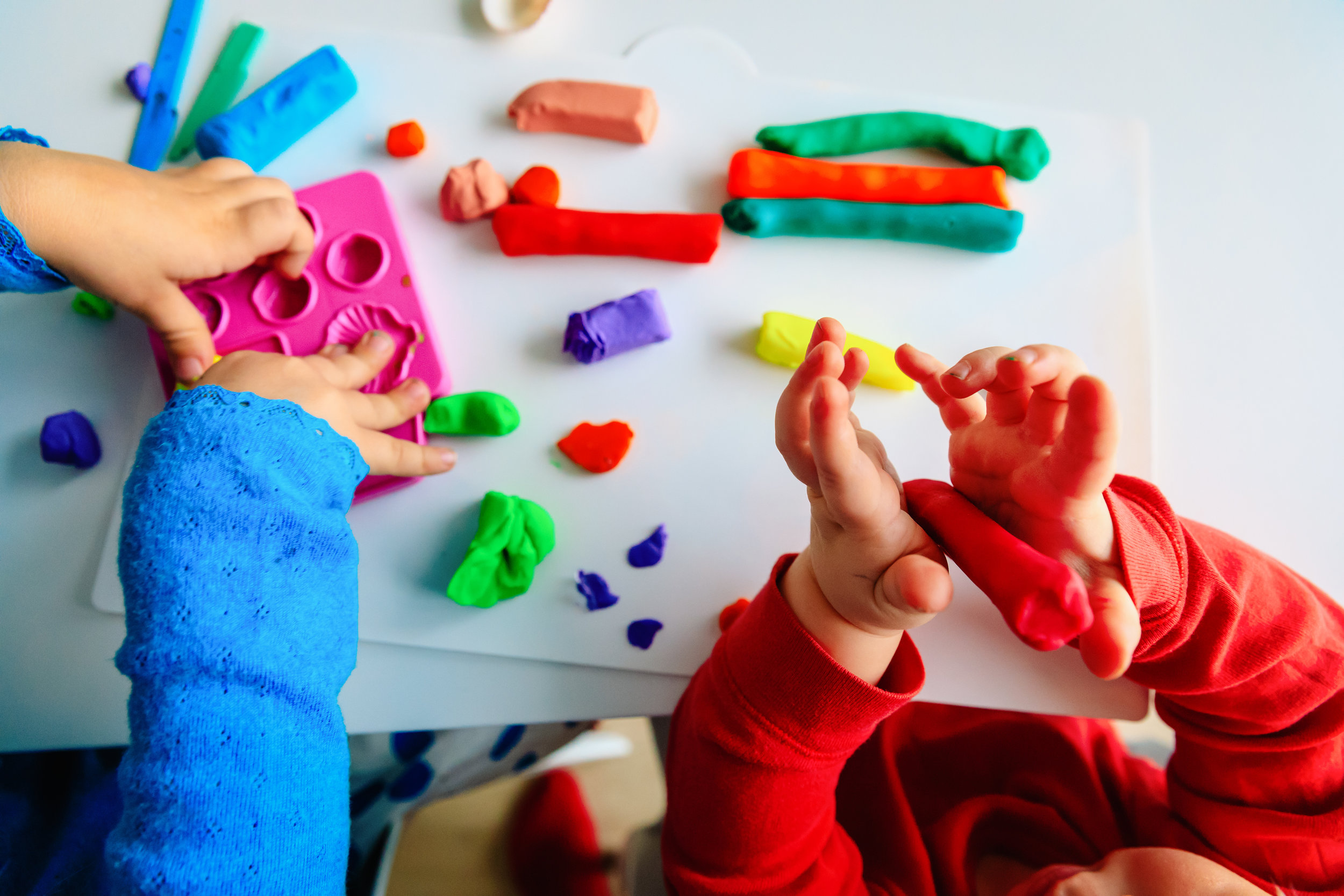The Benefits of Working Harder at Playing More
What if I told you that the computer would not exist if not for a flute playing caveman from 40,000 years in our past? Seems pretty far-fetched. In laying out his case for the importance of play in the history of innovation, Steve Johnson, the author of Wonderland: How Play Made The Modern World, makes the connection in this way: More than 40,000 years ago, after cavemen mastered fire, hunting, food and shelter, they found time to play by turning a small bear bone into a flute and making music. Not for survival, but for fun. (Source)
The invention of the flute by our prehistoric ancestors led to the invention of the organ around 2,000 years ago. A thousand years after that three brothers from Baghdad invented the automatic organ, a music box that was the world’s first programmable machine. This music machine inspired the invention of the programmable loom which in turn inspired Charles Babbage to use paper punch cards to create The Analytical Engine, which is the forefather to modern computing.
As Steve puts it, “Sometimes people invent things because they want to stay alive or feed their children or conquer the village next door. But just as often new ideas come into the world simply because they’re fun. Many of those playful but seemingly frivolous inventions ended up sparking momentous transformations in science, politics and society.” (Source)
PLAY AS A RIGHT…AND A BIOLOGICAL IMPERATIVE
Play has been at the center of my career for more than 20 years. I play for a living. I create games, write jokes, tell stories. I play every day. Sometimes for inspiration, other times to brainstorm, but most often to reconnect myself to the minds of the kids I am creating for. Until recently, I never spent much time thinking about the importance of play. It has simply been an intuitive part of my life. So, I was surprised to discover two things:
1. Play isn’t just fun; it is a biological imperative. An essential building block in human development.
2. Play has become increasingly devalued in our modern time crunched society.
Play is such an important part of human development it has been declared a right for every child in the world by the UN’s High Commission for Human Rights, Article 31
1. States Parties recognize the right of the child to rest and leisure, to engage in play and recreational activities appropriate to the age of the child and to participate freely in cultural life and the arts.
2. States Parties shall respect and promote the right of the child to participate fully in cultural and artistic life and shall encourage the provision of appropriate and equal opportunities for cultural, artistic, recreational and leisure activity.
According to the American Academy of Pediatrics, play is an essential part of healthy brain development. It is the mechanism by which children advance their imagination, dexterity, and physical, cognitive, and emotional strength. The Academy values play so highly that in 2018 it went so far as to recommend doctors give parents a prescription to play with their child every day during annual checkups.
Stuart Brown, the founder of the National Institute for Play puts play on the same level of importance as food, sleep and exercise.
“Neuroscientists, developmental biologists, psychologists, social scientists and researchers from every point of the scientific compass now know that play is a profound biological process. It has evolved over eons in many animal species to promote survival. It shapes the brain and makes animals smarter and more adaptable. In higher animals, it fosters empathy and makes possible complex social groups. For us, play lies at the core of creativity and innovation.”
In many ways, we are born a blank slate. Our brains are programed with basic functions of survival, but we need to paint the rest of the picture. We do that through play.
THE MANY BENEFITS OF PLAY
Improves Early Brain Development: Play helps develop increased language, social and emotional skills at an early age.
“Play is not frivolous: it enhances brain structure and function and promotes executive function (i.e., the process of learning, rather than the content), which allow us to pursue goals and ignore distractions. “(Source)
Increases Creativity: Pretend play enhances divergent thinking by engaging imagination and creativity.
“When children play, they experiment with different behaviors – build new block towers, create new shapes in sculpting clay – which help them develop the creativity and strategies necessary to successfully tackle novel problems.” (Source)
Improves Communication, Vocabulary and Language: The more toddlers play with others the quicker they develop language skills and a deeper vocabulary.
“By playing with others, children learn the art of communication. They come to recognize facial expressions and body language. They figure out how to strike up and carry on conversations, and how to express their thoughts and desires in a way that won’t cause problems and put a stop to the group game.” (Source)
Greater Impulse Control and Emotion Regulation: Play is how children learn the concepts of sharing and working together which leads to a stronger sense of patience and self-control.
“It is through play that children at a very early age engage and interact in the world around them. Play allows children to create and explore a world they can master, conquering their fears.” (Source)
Greater Social Competence And A Better Developed Sense Of Empathy: Playing with other kids provides opportunities for children to develop vital social interaction skills.
“Social skills, which are part of playful learning, enable children to listen to directions, pay attention, solve disputes with words and focus on tasks without constant supervision.” (Source)
Increased Happiness and Better Mental Health: The more kids play the happier they are.
“A Canadian study published in the Journal of Adolescent Health found that when teens play sports, they experience fewer symptoms of anxiety and depression as young adults. And a 2011 meta-analysis looking at exercise—an important component of active play—hinted that it could have benefits for anxiety, depression, and self-esteem in adolescents.” (Source)
Better Health: Physical play benefits physical health, motor control, strength and endurance.
“When kids are playing, they are learning reflexes and movement control, developing fine and gross motor skills and increasing flexibility and balancing skills. On top of that, when kids are involved in physical activity, they’re building stronger muscles and improving bone density, improving heart and lung function and preventing obesity, diabetes and high cholesterol.” (Source)
Better Relationships: Play is an excellent way to bond with parents, siblings and peers.
“Play is foundational for bonding relationships and fostering tolerance. It’s where we learn to trust and where we learn about the rules of the game.” (Source)
“A lack of play should be treated like malnutrition. It’s a health risk to your body and your mind.”
COUNTERING PLAY’S DECLINE
Despite the overwhelming amount of evidence that supports the many crucial benefits of play, the amount of time kids spend engaging in unstructured, free play continues to decrease each year. This is due to many factors:
Schools have dramatically decreased the amount of time kids spend playing in order to maximize achievement-based learning.
Busy parents don’t have as much time to play with their kids.
Kids are increasingly scheduled into structured activities.
When we deny kids the time to play freely without structure and rules, we are denying them their biological imperative.
“When play is allowed to be child driven, children practice decision-making skills, move at their own pace, discover their own areas of interest, and ultimately engage fully in the passions they wish to pursue.”
When kids have recreation time that is highly structured like baseball practice, ballet lessons and chess club they are not getting the same benefits they get from playing make believe with friends, a friendly pick-up basketball game or an afternoon of arts and crafts with mom and dad.
Knowing how important this kind of free play is to the happiness and well-being of children has given everyone here at Ultra Creative a new focus on finding ways to use our work to inspire more open ended, imaginative play in kids.
This free play mindset is something companies like Lego, Crayola and Melissa & Doug continue to expand upon with new products and campaigns that inspire kids to define their own ways to play. A few years ago LEGO asked kids to use their imaginations to build a “kronkiwongi”… a totally made up word that inspired kids creativity around the world as they used their Legos to dream up all kind of fantastical creatures, crafts and innovations. It’s a perfect example of how brands can encourage kids to see their imagination as the greatest toy they’ll ever own.
Thinking about that caveman who invented the flute, makes me wonder what a kid playing with one of our cereal box designs today will inspire someone to create 400,000 years from now.



